- Home
- Joe R. Lansdale
Sunset and Sawdust Page 12
Sunset and Sawdust Read online
Page 12
“Want to be my dog? I ain’t ever gonna run off and leave you. I promise.”
The dog licked her hand.
When Karen awoke, Sunset was dressed and cooking breakfast. Pancakes. She had also poured some molasses syrup into a pan and was heating it on the stove.
The big dog was lying on the floor near Sunset’s feet.
Sunset turned, saw Karen rise up, said, “Be easy. He’s still a little skiddish.”
“Will he bite?”
“Any dog will bite sometimes.”
“Will he bite me?”
“Not if you’re nice. Don’t scare him.”
“He don’t look scared to me.”
Sunset smiled. “Didn’t have no butter. But the syrup is warm. It’ll be on the table in a minute.”
“Are we gonna keep him?”
“Yeah. I promised him. Reckon he’s had enough promises broken.”
“What’s his name?”
“I think it’s Ben. Think Clyde said Ben. I’m gonna call him Ben, anyway. Your daddy never would let me have a dog.”
“I always wanted one too.”
“He’s a big old pretty thing, ain’t he?”
Karen nodded, got up slowly, eased out of bed.
Sunset said, “Stick out your hand, easy like, and come toward him slowly.”
Karen did that.
The dog stood up and licked her hand.
“He likes me,” Karen said.
“There’s a lot to like.”
Karen bent down and hugged the dog. The dog licked her ear.
“Hello, Ben,” Karen said.
“Wash your hands before you eat,” Sunset said.
12
After about a week on the job, which was mostly sitting around Sunset’s tent, delivering one foreclosure paper and making a drunk leave the Camp Rapture store after a fight, Clyde awoke in his broken-down bed thinking of Sunset. He had dreamed about her, and in the dream she was his, but the truth was he wasn’t ever going to have her. Not with Hillbilly around.
He even had one dream where he killed Hillbilly by beating him to death with a chicken, then buried him in the yard, with the bird. He liked that dream almost as much as the one where Sunset loved him.
Clyde sat up on the edge of the bed and looked around the room. Newspapers, all manner of junk. Just a path from the bed to the door. And all the rest of the house the same way. Worse.
How did he think he could attract a woman when his house was a pile of shit. Hell, he was a pile of shit. You could stack shit any way you wanted, arrange it any way you wanted, but in the end, no matter how you worked it, a pile of shit was a pile of shit.
It never occurred to him to be any other way.
And then, when Sunset killed her husband, he felt the wind from a door being opened—a door he wanted to walk through. One that led to a room with him and Sunset. The possibility had not been there before, but now . . .
He wanted her. He wanted her to want him. And for the first time in years, he was worried about the way his house looked, the way he looked. And he was damn worried about Hillbilly. The sonofabitch could roll in dirt and come up looking good. He looked as if he had been created for the girls. All lean and handsome, thick hair, no nose, ear or back hair. Hell, his balls were probably smooth.
Clyde pulled on his pants, went through the newspaper path to the room where Hillbilly slept. It was a large room, but it seemed small, as all manner of junk was collected there. Clyde no longer knew what junk it was or why he kept it.
Hillbilly was asleep on a mattress on the floor. Nearby, a big pot was still full of water from the last rain that had leaked through the ceiling. Bugs had died in the pot. It looked real nasty. Clyde hadn’t thought about it looking nasty before. But now he could see it. It was nasty.
“You might ought to go on and get up,” Clyde said.
Hillbilly turned over slowly, blinked his eyes open. “Time already?”
“You go in today. Tell Sunset I got to take some time off, but I’ll be back. I ain’t quitting or nothing. And if she needs me bad, come get me. Take the truck.”
After Hillbilly left, Clyde stood outside and studied the old worn-out house. Finally he went inside and dragged out a tarp he had saved. It was rotten in spots, but mostly sound, and he tied it between trees, moved some other items out of the house he thought he might need, like his guns, ammunition, pots and pans, lanterns, and such, tucked them under the tarp.
He spent half the day doing this, and pretty soon realized he was merely taking what was in the house outside, and therefore solving little to nothing.
He thought on it a while, put some of the items back in the house, came out and wet his finger by poking it in his mouth, held it up. There was no wind to speak of.
Back inside he got some matches, lit one to a pile of newspapers. The papers were so mildewed and stuck together, the fire went out. He got some kerosene and spread it throughout the house in a winding trail. On his way out the door he struck a match to it.
Outside, Clyde watched, hoping the wind wouldn’t change and carry it to the woods. He was amazed at how fast the house caught. Pretty soon flames were licking out of the open door and broken windowpanes. He could hear things popping and crackling inside. All the printed news that was news for the last ten years was on its way to the gods, via a trail of smoke.
Fire licked up through the gaps in the roof and pretty soon the roof caught and the flames made a wavy hat and black smoke poured out of the holes in the roof and out of the fireplace. Glass in the windows popped to pieces. In less than an hour the house was consumed, except for the chimney, but with nothing to hold it up, it fell to the ground with a thunderous crash, tossing bricks in all directions. From the time of starting the fire to the time of flames licking at blackened lumber, broken glass and shattered bricks, about two hours passed.
After a while, Clyde took the shovel he had saved from under the tarp and went over and started stirring things with it, spreading the last of the fire out so it would die. He took water from the well and poured buckets of it on what he deemed trouble spots, places that might flare up again if left alone.
He had spared the chairs, placed them under the tarp, and now he picked one and sat and drank from something else he had spared. A bottle of whisky. It was cheap stuff and it tasted like it, all bite and no sugar. By late afternoon he decided it tasted pretty good and drank it all, fell asleep in his chair.
He did so with new plans in his head for a place to live. He would build a new house. One without newspapers and junk, mold and mildew, a leaky roof and a smell like chicken shit. This one would be fresh and it would be painted white and the roof would be fine, with a brand-new chimney made of red bricks and plaster.
He slept, wishing he could burn himself down and rebuild, maybe in Hillbilly’s image.
Was there a blueprint for that?
The smoke had gone from black to white and from rolls to puffs, and pretty soon there wasn’t even that, and by late afternoon, while Clyde slept, a soft rain came and stirred the ashes and made fresh smoke.
Lightning flashed and thunder crashed, but Clyde never knew it.
About the time Clyde was snoozing under the tarp and the rain was falling on what remained of his smoldering house, Zendo drove up in his pickup and parked in front of Sunset’s tent.
He got out and went cautiously up to the tent. He didn’t take hold of the flap. He stood a respectful distance away and called out.
“Miss Constable. Miss Jones.”
Sunset and Hillbilly and Karen were sitting on the business side of the tent playing cards. They got up and went out. It was raining lightly.
Zendo had moved back to his truck, and was holding his hat in his hands, turning it like a steering wheel. The rain was running down his face and his clothes were damp with it.
“Zendo,” Sunset said, “you look like you’ve seen a ghost.”
“No, ma’am. I ain’t seen no ghost. I seen something worse.”
Karen, much to her dismay, was made to stay at the tent. Sunset and Hillbilly followed Zendo in Clyde’s truck. Hillbilly drove. They followed Zendo to the tree where they had first spoken, pulled up under it, parked and got out.
Zendo had unharnessed his mules, tied them to two separate trees near the oak to keep them from crossing up. His plow lay on its side, a middle buster attached to it.
Zendo came over, said, “I’ll show you now.”
He started walking, and they followed.
“I done decided to bust up a bit more of my land. Add a few rows here closer to the woods, to where I found that jar with the baby in it, and, well, my plow cut into it.”
Zendo was pointing.
They looked down. There was a dark, round object sticking out of the ground and the top of it was covered in something stringy and oily. It had been cut open with the plow and it was dark inside where it had been cut, looked like old wet cork.
“Is that some kind of vegetable?” Hillbilly said.
“No sir, it ain’t,” Zendo said. “Come on around here.”
They followed him. “Look down there now.”
Sunset squatted, turned her head. The big turnip had an eye socket. It was full of black dirt. Below the eyes was a flap of nose and below that a lip, and part of it was gone, and what was left looked to have dried up like a worm on a hot stove. The lip was curled in such a way Sunset could see dirt-stained teeth.
“My God,” she said.
“Is it a watermelon?” Hillbilly asked.
“No,” Sunset said.
“Naw, it ain’t no watermelon,” Zendo said.
Hillbilly bent over, looked, said, “Nope. Not a watermelon.”
It was long, slow, and careful work because pieces of it kept coming off, but when they dug the body up, they found it had been planted straight down, like a post.
The corpse was covered in something black and sticky. Zendo said, “That’s just the way that baby was in the jar. All oily.”
“Is that in your soil?” Hillbilly asked. “That oil?”
“Ain’t no oil in this soil,” Zendo said.
“No maggots,” Sunset said. “So it may not have been here long.”
“Reckon it’s that oily stuff. It’s kept the body from rotting outright. Or some of it. Maggots done eat what they gonna eat. Rest, they leave alone.”
“Who’d think a maggot had taste buds,” Hillbilly said.
“Way the weather is, hot as it is,” Sunset said, “it still amazes me it ain’t nothing but bones.”
“There ain’t no way figuring weather or what it’ll do,” Zendo said.
“Body ain’t got no clothes on,” Hillbilly said, “but I can’t tell if it’s a man or a woman.”
“It’s a woman,” Zendo said.
“How do you know?” Hillbilly asked.
“Hip bones, way they spread,” Zendo said. “She probably done had a baby.”
“I wonder if she was white or black,” Sunset said.
“She was white,” Zendo said. “That stringy stuff on top of her head ain’t colored hair.”
Sunset took hold of the hair, rubbed it between thumb and forefinger. It was coated in oil, but it was fine and smooth.
“Probably right,” Sunset said. “You got some kind of sheet or old blanket or something, Zendo? Something we could carry the body out with?”
“I can go up to the house and look,” Zendo said.
“Would you?”
When Zendo drove off, Hillbilly said, “He sure is certain it’s a white woman. I can’t look at that hunk of rotten meat and tell much of anything. But he knows it’s a woman and he knows she’s white.”
“Think he would come and get us if he did it?” Sunset asked.
“Could be to throw us off.”
“No,” Sunset said. “He’s as nervous and messed up about it as we are.”
“Killers can feel bad about what they done . . . What do you think this oil business is about?”
Sunset shook her head. “I don’t know. It’s odd. And that baby was coated in oil. I don’t get it. And why in the hell are they burying them here on Zendo’s patch of land?”
“You’re too innocent, Sunset.”
“I don’t think I’m near that innocent anymore,” she said.
“Watch out for Zendo. I don’t trust him.”
“I think he’s all right,” Sunset said. “We take the body in, don’t mention anything about Zendo or where we found it. Just say it’s law business for now. Okay?”
“All right.”
They waited about fifteen minutes before Zendo showed up with a ratty-looking patchwork quilt. “We had this for the dog to lie down on. I didn’t want to use a new one. Will this be all right?”
“Sure,” Sunset said. “She won’t mind.”
They managed the corpse onto the blanket, loaded it into the back of Clyde’s pickup, drove it into Camp Rapture. They found Reverend Willie Fixx at his house eating a meal.
“Well, now,” Willie said, holding the door open, his mouth shining with grease from his meal, his eyes roaming Sunset’s body from head to toe and back again. “To what do I owe the pleasure, Miss Jones? You coming to be baptized? I don’t believe you ever was, not even when you was a little girl. I got a robe you can wear, we can go down to the creek where it’s deep and do it.”
“I’m here on law business,” Sunset said. “This is Deputy Constable Hillbilly.”
“Hillbilly,” Willie said. “I was trying to remember what I’d heard you called. I thought it was Bum.”
“No,” Hillbilly said. “That’s my usual occupation.”
“Law business, you say,” Willie said.
“That’s right,” Sunset said. “You’re the only one I knew to come to, since you fix dead bodies up for burying. Maybe I should have gone to the doctor. I wasn’t sure.”
“Body in the truck?”
Sunset nodded.
“Who is it?”
“Don’t know,” Sunset said. “Thought you might be able to help me there. Find out how she died, who she is.”
“Body is pretty worn out,” Hillbilly said. “Can’t even tell if it’s a man or woman or what color it is.”
“Where did you find it?”
“I’d rather not say yet,” Sunset said. “Law business again.”
“I’m finishing up my dinner.”
“We’ll wait,” Sunset said.
“Drive the body around back. You know where I mean?”
“I think so,” Sunset said.
While Willie finished eating, Sunset and Hillbilly got in the truck and Hillbilly drove them around back. There was a low overhang porch there and a big pecan tree and lots of shade. They got out and stood between the car and the tree, and Sunset leaned against the tree. Hillbilly stood very close to her, and then, slowly, he eased his face toward her, and they kissed.
“I been wanting to do that,” he said.
“And I been wanting you to,” Sunset said. “But not here. Not now.”
But she kissed him back.
“That’ll have to hold us,” she said.
“I suppose,” Hillbilly said. “You’re trembling.”
“I believe I am.”
About five minutes later Willie came out of the back, wiping his mouth with his sleeve. He looked in the truck bed at the blanket-covered corpse.
“Ripe-smelling,” he said, as he pulled back the blanket. “Oh, yeah. That’s a dead one. Don’t know if it’s white or a nigger?”
“No,” Hillbilly said. “The body’s coated in oil, which gives it a dark color. That and, well, the meat is so rotten.”
“Let’s see here. Well, it’s a woman. You can tell by that pelvis flare.”
Sunset looked at Hillbilly. Hillbilly shrugged.
“Let me see,” said Willie as he climbed into the bed of the truck. “Eyes are gone, but looks to have a bit of hair still in place.”
Willie took hold of the hair between thumb and forefing
er. “Awful fine for a nigger. I’d say it’s a white woman. Maybe I ought to say a little prayer over her, case it is a white woman.”
“What if she’s colored?” Sunset said.
“It won’t hurt her none. Hell, say a prayer over a dog it don’t hurt nothing, it’s just when they’re dead, they got no place to go. Haul her inside for me.”
Hillbilly and Sunset took hold of opposite ends of the blanket and hauled the body out of the back of the truck, followed Willie inside. It was a small room and there were three wooden coffins against the wall, and there was a table and some instruments for embalming.
“Any way to figure who it is?” Sunset asked.
“No way I know. Thing to do is find if someone is missing. See if they fit the general description. I’ll get a height measurement and such. But she needs to go in the ground pronto. She come out of the ground, didn’t she? There’s dirt mixed in with that oil, and it’s spread all over.”
“Yeah,” Sunset said, “she came out of the ground.”
“Might could figure better who it was I knew where you found her,” Willie said. “Could even be someone I know.”
“The country,” Sunset said. “West of here, near the woods.”
“The dirt mixed in this oil, the oil makes it dark, but it looks dark to begin with to me. Not all of it, just some. Her left side is dark dirt, the right side is a lighter kind of dirt. Ain’t but one person got dirt like that around here. That nigger Zendo. I figure you found it at the edge of his plowed land, that would be the dark dirt on her left side, and the other dirt, that would be land unplowed. Hell, I figure he plowed her up—you figure Zendo did it?”
“I didn’t agree with you,” Sunset said. “I didn’t say Zendo had a thing to do with it.”
“Dirt like that, that’s Zendo’s signature. Everyone knows that nigger could drop an egg in the ground and grow a bush of chickens. It was found on his land, all right.”
“Okay,” Sunset said. “The body was found on Zendo’s land, but you have to take my word for this. He had nothing to do with it.”
“You know that for a fact?” Willie said.

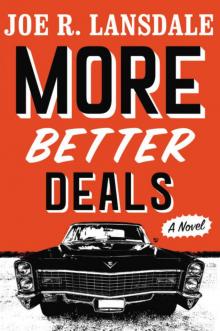 More Better Deals
More Better Deals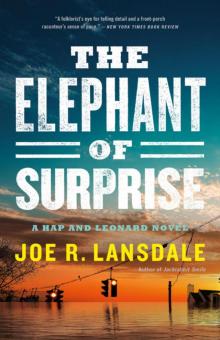 The Elephant of Surprise
The Elephant of Surprise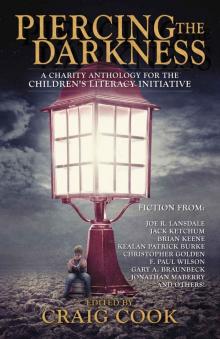 Piercing the Darkness: A Charity Horror Anthology for the Children's Literacy Initiative
Piercing the Darkness: A Charity Horror Anthology for the Children's Literacy Initiative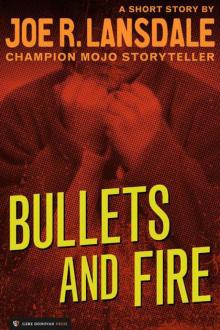 Bullets and Fire
Bullets and Fire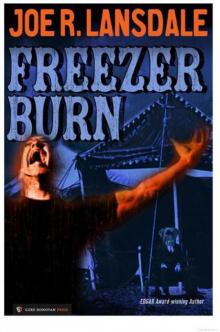 Freezer Burn
Freezer Burn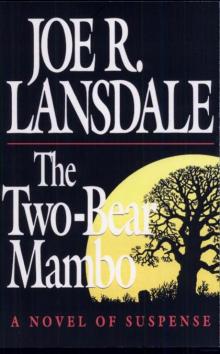 The Two-Bear Mambo
The Two-Bear Mambo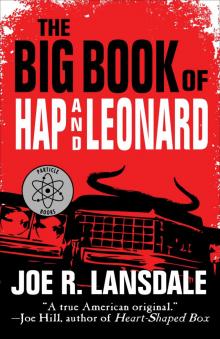 The Big Book of Hap and Leonard
The Big Book of Hap and Leonard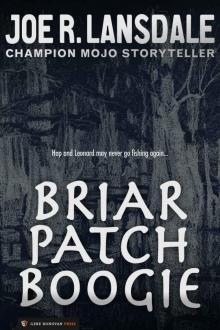 Briar Patch Boogie: A Hap and Leonard Novelette
Briar Patch Boogie: A Hap and Leonard Novelette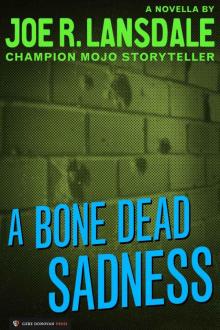 A Bone Dead Sadness
A Bone Dead Sadness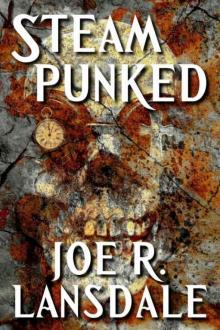 Steampunked
Steampunked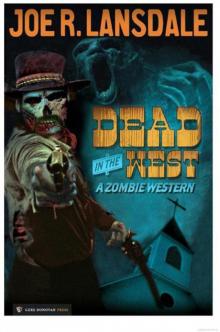 Dead in the West
Dead in the West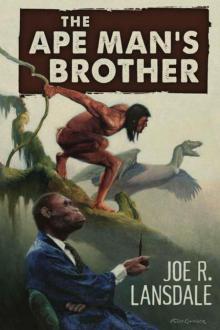 The Ape Man's Brother
The Ape Man's Brother The Bottoms
The Bottoms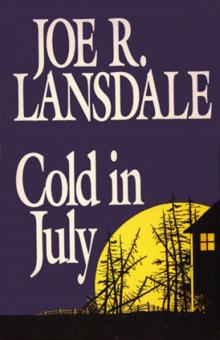 Cold in July
Cold in July The Complete Drive-In
The Complete Drive-In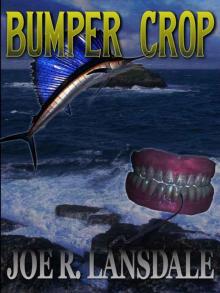 Bumper Crop
Bumper Crop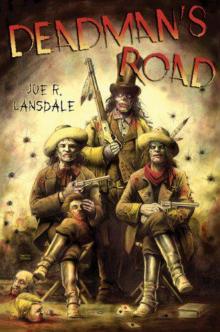 Deadman's Road
Deadman's Road Captains Outrageous
Captains Outrageous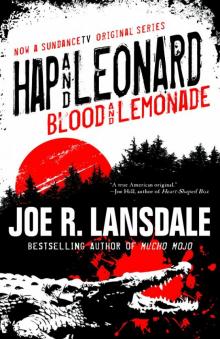 Hap and Leonard: Blood and Lemonade
Hap and Leonard: Blood and Lemonade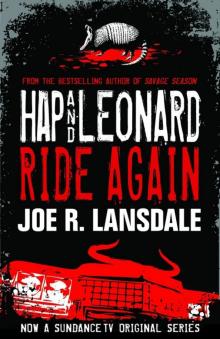 Hap and Leonard Ride Again
Hap and Leonard Ride Again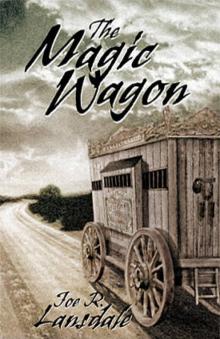 Magic Wagon
Magic Wagon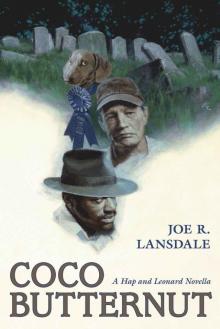 Coco Butternut
Coco Butternut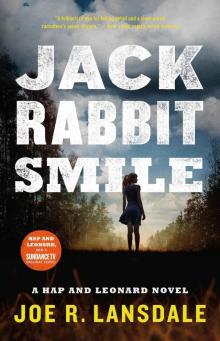 Jackrabbit Smile (Hap and Leonard)
Jackrabbit Smile (Hap and Leonard)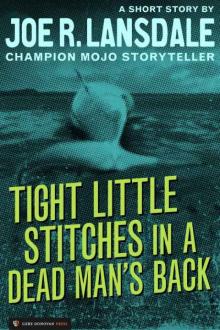 Tight Little Stitches in a Dead Man's Back
Tight Little Stitches in a Dead Man's Back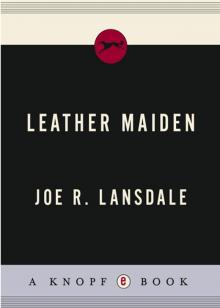 Leather Maiden
Leather Maiden Cold Cotton: A Hap and Leonard Novella (Hap and Leonard Series)
Cold Cotton: A Hap and Leonard Novella (Hap and Leonard Series)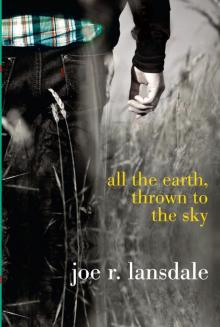 All the Earth, Thrown to the Sky
All the Earth, Thrown to the Sky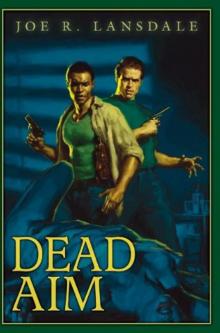 Dead Aim
Dead Aim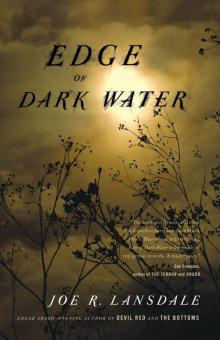 Edge of Dark Water
Edge of Dark Water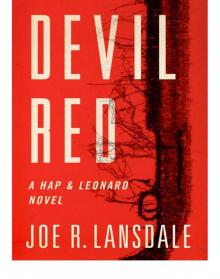 Devil Red
Devil Red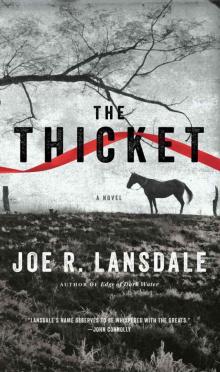 The Thicket
The Thicket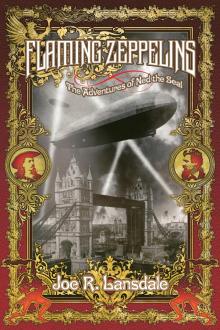 Flaming Zeppelins
Flaming Zeppelins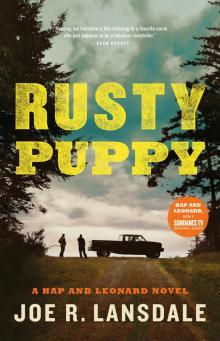 Rusty Puppy
Rusty Puppy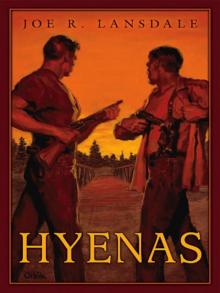 Hyenas
Hyenas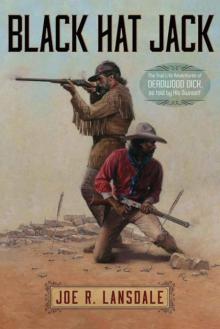 Black Hat Jack
Black Hat Jack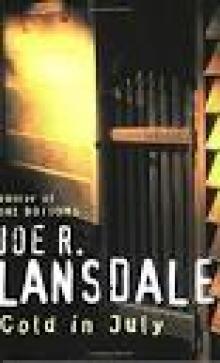 Rare Lansdale
Rare Lansdale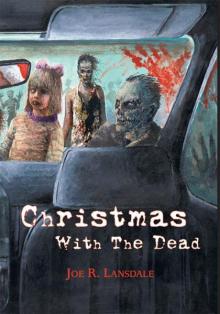 Christmas With the Dead
Christmas With the Dead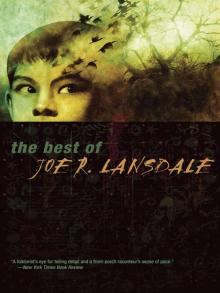 The Best of Joe R. Lansdale
The Best of Joe R. Lansdale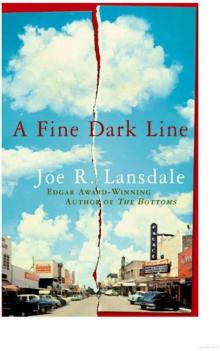 A Fine Dark Line
A Fine Dark Line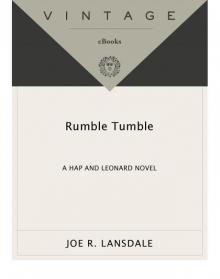 Rumble Tumble
Rumble Tumble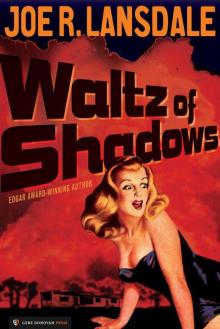 Waltz of Shadows
Waltz of Shadows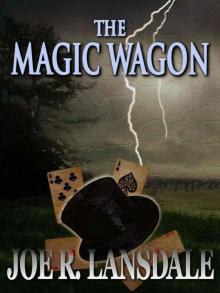 The Magic Wagon
The Magic Wagon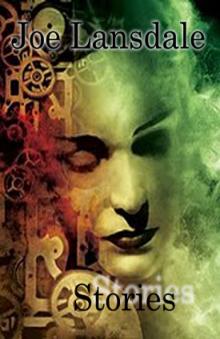 Stories (2011)
Stories (2011)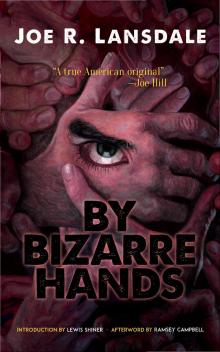 By Bizarre Hands
By Bizarre Hands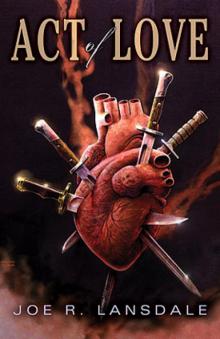 Act of Love (2011)
Act of Love (2011)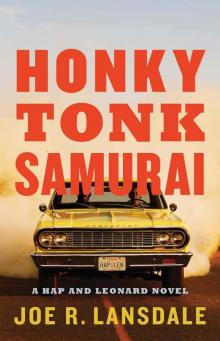 Honky Tonk Samurai (Hap and Leonard)
Honky Tonk Samurai (Hap and Leonard)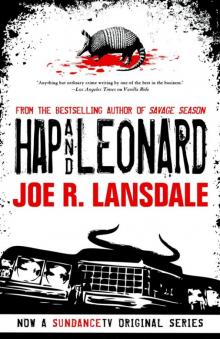 Hap and Leonard
Hap and Leonard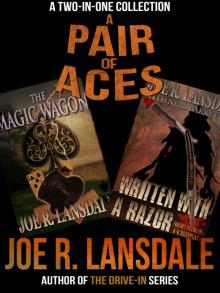 A Pair of Aces
A Pair of Aces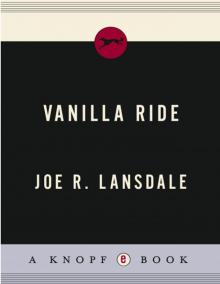 Vanilla Ride
Vanilla Ride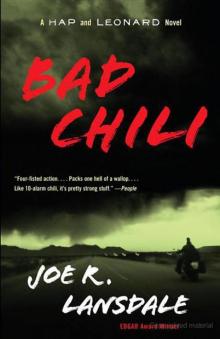 Bad Chili
Bad Chili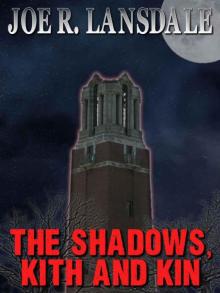 The Killer's Game
The Killer's Game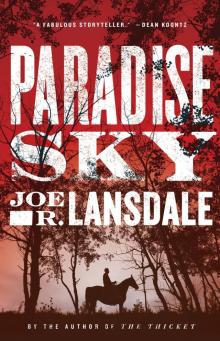 Paradise Sky
Paradise Sky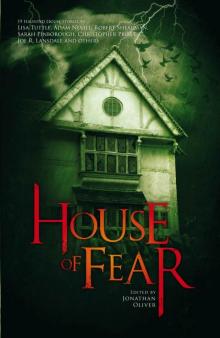 House of Fear
House of Fear Lost Echoes
Lost Echoes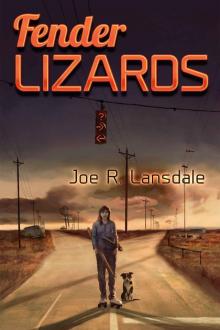 Fender Lizards
Fender Lizards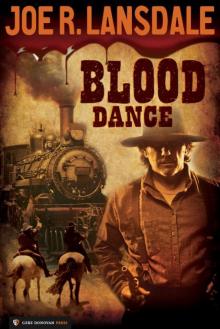 Blood Dance
Blood Dance Hot in December
Hot in December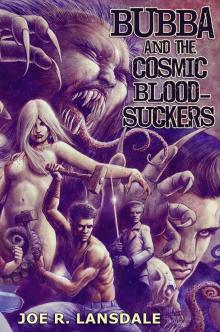 Bubba and the Cosmic Blood-Suckers
Bubba and the Cosmic Blood-Suckers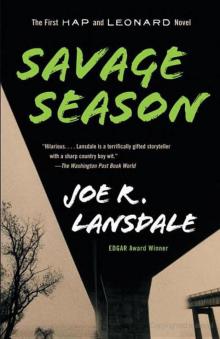 Savage Season
Savage Season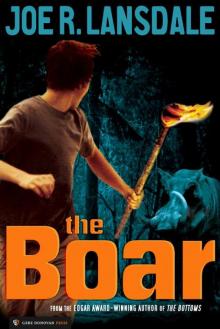 The Boar
The Boar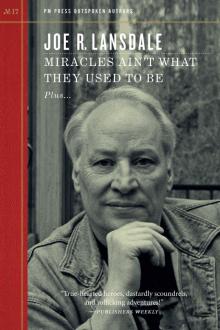 Miracles Ain't What They Used to Be
Miracles Ain't What They Used to Be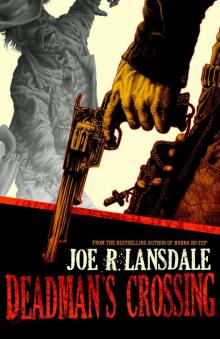 Deadman's Crossing
Deadman's Crossing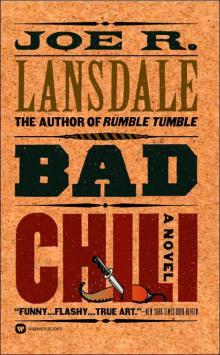 Bad Chili cap-4
Bad Chili cap-4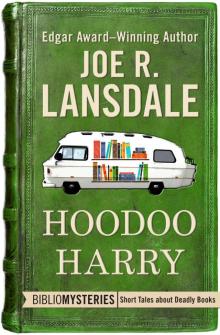 Hoodoo Harry
Hoodoo Harry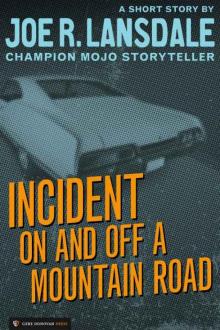 Incident On and Off a Mountain Road
Incident On and Off a Mountain Road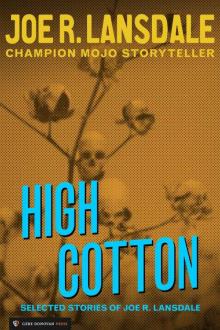 High Cotton: Selected Stories of Joe R. Lansdale
High Cotton: Selected Stories of Joe R. Lansdale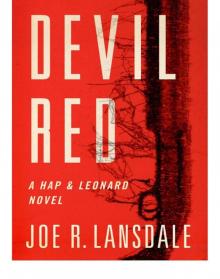 Devil Red cap-8
Devil Red cap-8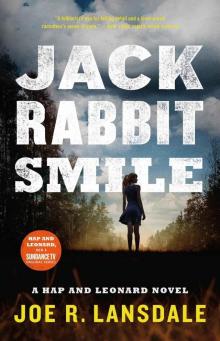 Jackrabbit Smile
Jackrabbit Smile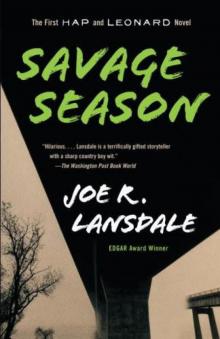 Savage Season cap-1
Savage Season cap-1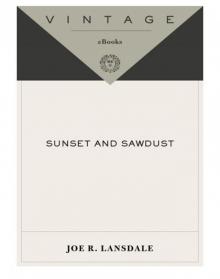 Sunset and Sawdust
Sunset and Sawdust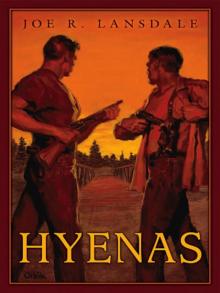 Hyenas cap-10
Hyenas cap-10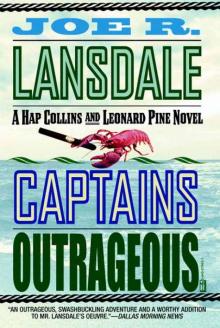 Captains Outrageous cap-6
Captains Outrageous cap-6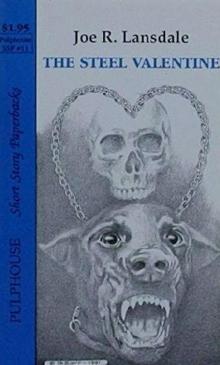 The Steel Valentine
The Steel Valentine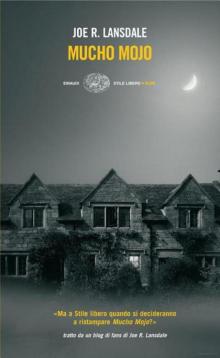 Mucho Mojo
Mucho Mojo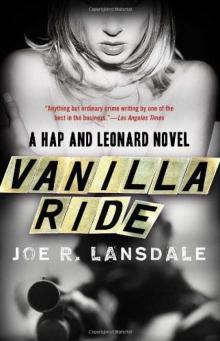 Vanilla Ride cap-7
Vanilla Ride cap-7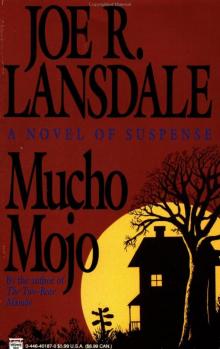 Mucho Mojo cap-2
Mucho Mojo cap-2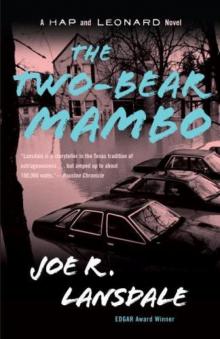 The Two-Bear Mambo cap-3
The Two-Bear Mambo cap-3